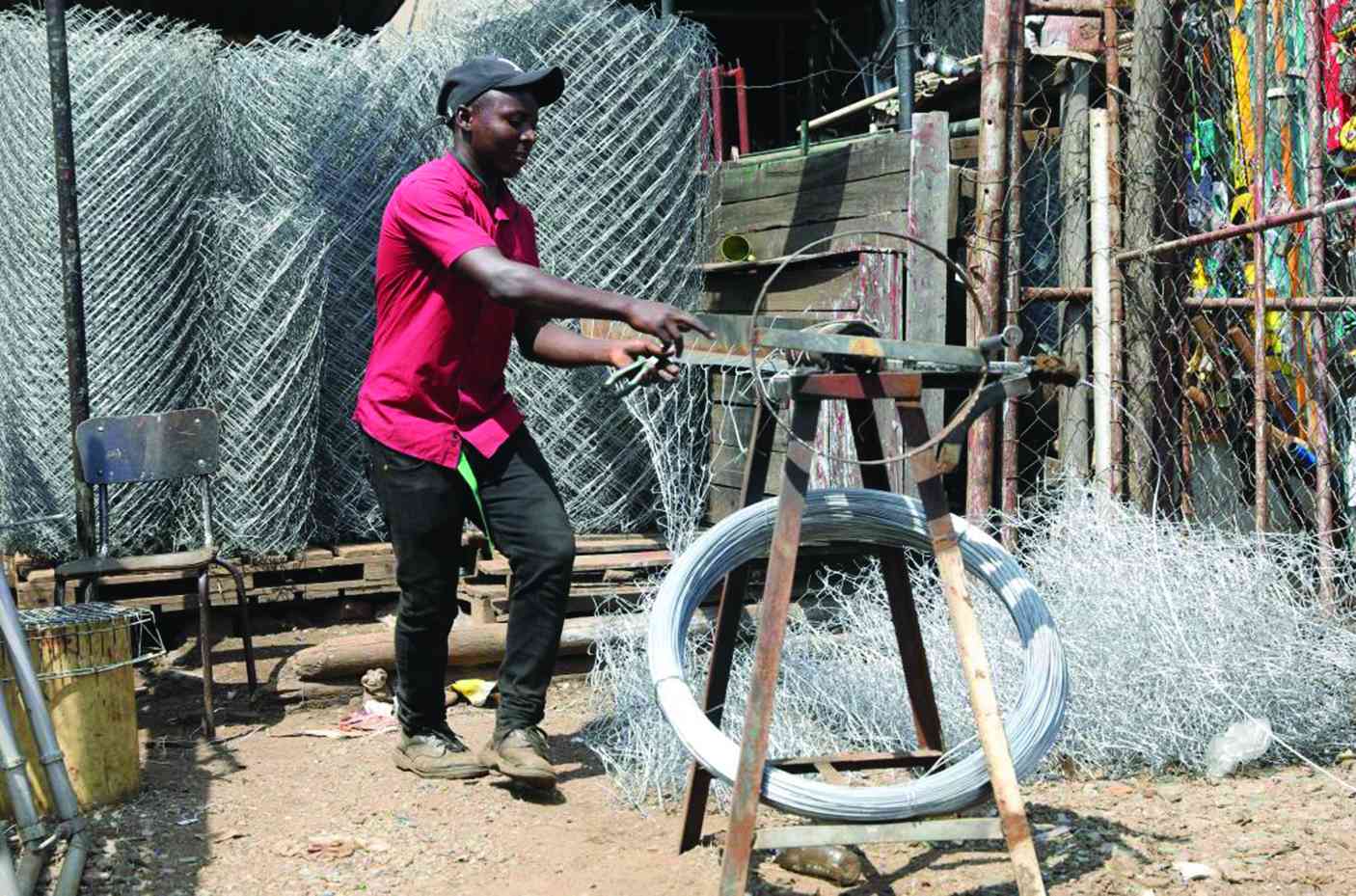
WINNING is not everything. When you are far away from Zimbabwe, it is tempting to say everything "isn't good," arguments are "completely empty," or viewpoints are merely average. My recent visit to Zimbabwe inspired this observational article.
Initially, I had assumed everything in Zimbabwe was not good, including the mindsets. In Shona, we say, "kutenderera muimba yeraundi kutsvaga kona," which means avoiding offending your mind — the author of Emotions, Moods, Will, Feelings, and Intelligence. This phrase points to the sharp criticism we often direct at our teapot-shaped country, Zimbabwe.
My article consists of four parts: Epigrams on toga politics and the social economy, pointed criticisms on vain capitalism, a follow-up to my letter to the President, and a final note on the role of empowered Zimbabweans in contemporary life.
I want to thank the gentleman who met me near Karigamombe building and said, "We enjoy your articles a lot!" I felt honoured by this reader's use of the inclusive "we".
On another note, I wanted to visit the President to discuss my concerns about those who prioritise presidential entertainment over responsibility.
I witnessed some motorcades, perhaps not the President’s. With all the roads being refurbished leading to the new parliament building, I thought, "all roads lead to Rome". I realised that, much like Rome, our development will not happen overnight.
I would have loved to say casually, ‘Rome wasn’t built in one day,’ but then I realised that when you are in Rome, you do what the Romans want.
Toga politics and the social economy
- Mavhunga puts DeMbare into Chibuku quarterfinals
- Bulls to charge into Zimbabwe gold stocks
- Ndiraya concerned as goals dry up
- Letters: How solar power is transforming African farms
Keep Reading
Random facts about Rome show that at its peak, the road system spanned over 250 000 miles (400 000 kilometres), with more than 50 000 miles (80 000 kilometres) of paved roads. These roads were vital for the movement of armies, trade, and communication across the vast empire. I hope the construction of new roads in Zimbabwe will similarly benefit the common person.
I also noticed beautiful cluster homes around the country. Everyone is talking about dollar power. Politics, which is about governance and public affairs, becomes chaotic if pursued without personal development.
The Romans knew that self-discipline and strategic thinking were prerequisites for politics. They understood the wisdom in personal development to avoid trivial debates over toga colours instead of substantial issues.
Don’t forget, I use the phrase, ‘when in Rome, do as the Romans do,’ to attest to what my favourite Saint, Saint Ambrose meant in the 4th Century when he urged everyone to adapt to local customs, while the common phrase ‘Rome wasn’t built in a day,’ perpetuated a falsity that greatness takes time, much like perfecting the recipe for a truly satisfying Roman feast.
Winning is not everything. No one can be number one forever. When the match is over, each player should look at what they should have done better and not who scored cheap political or social goals.
I believe in high end philosophy. What else do amateur philosophers want in life? In one film, it is said, when the pawn reaches the last square, it becomes who it wants: pawn, castle, knight, bishop, queen, or any other chess piece, save the king.
My first point is that the 2023 elections created a toga party atmosphere, with folks draping themselves in bedsheets pretending to be Roman nobles.
This hilariously parallels Zimbabwe’s political scene, where the Citizens Coalition for Change (CCC)’s yellow, the New Blue Movement, and Zanu PF’s 2030 slogan, ‘Mnangagwa will be there’ are vibrant toga colours in this political carnival just before the Sadc Summit in Zimbabwe.
These political factions are busy jostling for supremacy, much like toga partygoers debating the authenticity of their draping skills. Personal development takes a backseat, delaying the seriousness of self-improvement. Or at least, everyone should learn Roman social engineering.
On vain capitalism
An observer helps a non-observer think illogically, teaches them to be irrational, and finally teaches them to be a logical observer. In an abnormal sequence, the non-observer trashes or gives in to the observed analysis.
Emphasis on social economy or social entrepreneurship is urgently needed in Zimbabwe. While heroic maximalism is celebrated when security forces pounce on illegal forex dealers, more is needed to make the social economy beneficial to the ordinary person.
Vain capitalism describes Zimbabwe's current economic system, where profit maximisation is pursued with little regard for social welfare, ethical standards, or long-term sustainability. I coined this term when I listened to my mother, who received a bank account long ago on the basis that she was a war collaborator, vainly hoping she would receive money like war veterans and detainees.
The same holds for ordinary people struggling to get US dollars and never seeing ZiG money. The political economy favours state policies benefiting the wealthy and powerful, undermining public trust in economic institutions.
Vain capitalism can be tamed if government and market forces commit to social economy and entrepreneurship, promoting inclusive growth, ethical business practices, and sustainable development.
Rejection of old US$100 notes in 2006 or its rating at US$80 or US$90 exemplifies the lack of confidence in the vain capitalism system at a macro level. It is some microcosm of the macrocosm kind of politicking which must be stopped forthwith.
Although Zimbabwean banks technically accept the notes, bureaucratic requirements create barriers, exacerbating economic and social exclusion. Linking these issues to social economy reforms would promote social and financial inclusion, simplify access to banking, and rebuild trust through transparent financial practices.
A follow-up to my letter
My letter was not about political impressionism, which creates superficial positive perceptions of leadership through glossed-over commendations.
Nor was it meant to stage provocation, which diverts attention from underlying issues.
The clarity of this peasant’s letter was simple. It focused on the current president's legacy, emphasising that inclusive governance should take precedence over superficial societal transformation. President Emmerson Mnangagwa’s legacy must transcend staged provocation or political impressionism.
Building good roads, like Masvingo-Beitbridge road, and promoting political moderation are positive steps but must be part of a broader social transformation to ensure they are not seen as mere political points.
On social empowerment
The legacy Mnangagwa is attempting to establish can best be described as a ‘developmental legacy,’ which seeks to create sustainable and inclusive growth that benefits future generations.
I may draw analogy to his common remark of the Shona custom called Gomo raMasare of Masare’s mountain. If one leaves a bad legacy, surely, they are labelled Zimbovora raMasare or Masare’s fool as Mnangagwa attested.
The Shona custom called "Gomo raMasare" signifies leaving a good legacy. If one leaves a good legacy, their grave is neatly swept. Social empowerment means providing access to education, water, food, healthcare, and fostering social entrepreneurship.
I watched villagers flock to Chihambakwe to see social welfare representatives discussing national social security lifetime cards. Mnangagwa’s efforts to curb cronyism and violence by party members enhance political accountability.
These steps are crucial for political accountability and good citizenship, even though people may hesitate to acknowledge them due to abject poverty
- Hofisi is an itinerant researcher and has interests in social economy and social entreprneurship.











